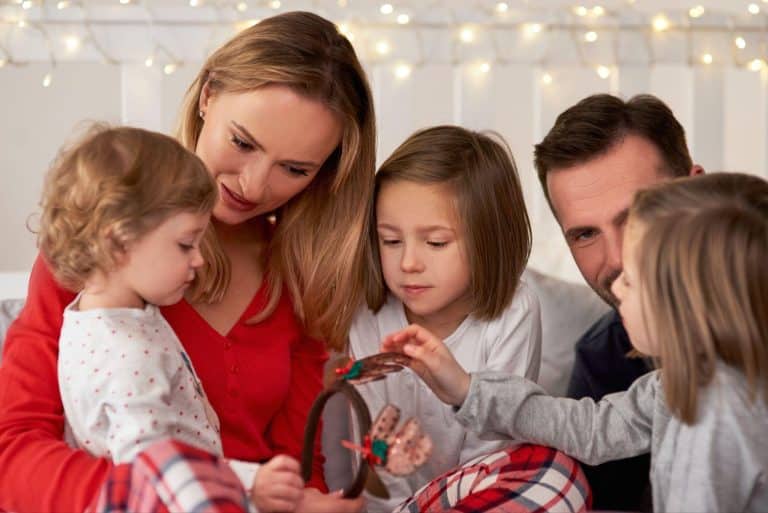The Ultimate List of Two-Syllable Words for Beginners
Learning to read and pronounce two-syllable words can be challenging for beginners.
Many new readers struggle with breaking down longer words, which can slow their progress and lower their confidence. However, mastering two-syllable words is essential for reading fluency.
This article provides a helpful solution: a curated list of two-syllable words perfect for beginners.
We’ll cover common two-syllable words, explain what syllables are, and give tips for identifying them. You’ll find practical examples and fun activities to make learning easier.
Whether you’re a parent, teacher, or learner, this guide will give you the tools to tackle two-syllable words easily.
Understanding Two-Syllable Words

A syllable is a basic unit of speech. It’s a single sound in a word that typically includes a vowel.
Words can have one or more syllables. For example, “cat” has one syllable, while “butter” has two.
Syllables are key in early reading. They help children break down words, making them easier to read and say.
Learning to spot syllables improves reading speed and accuracy. It’s a skill that helps readers tackle longer, more complex words.
To identify syllables, try clapping as you say a word. Each clap matches a syllable.
Another way is to count the vowel sounds in a word. For instance, “banana” has three claps and three vowel sounds, so it has three syllables.
Alphabetical List of Two-Syllable Words
1. Words Starting with A
- “Apple”: A fruit name that’s easy to recognize.
- “Artist”: Introduces the idea of jobs and being creative.
- “Animal”: A broad term for living creatures.
- “Atlas”: A book of maps, good for learning about the world.
- “Absent”: Useful for talking about not being somewhere.
- “Action”: Introduces the concept of doing something.
- “Album”: Relates to music and photos.
- “Anchor”: Nautical term that expands vocabulary.
- “Airport”: Travel-related word, good for discussing places.
- “Awful”: Describes negative feelings or situations.
2. Words Starting with B
- “Baby”: A word most children know well.
- “Bingo”: A fun game name that’s easy to remember.
- “Butter”: A common food item, simple to pronounce.
- “Button”: Everyday object helps with clothing vocabulary.
- “Bubble”: Fun word associated with play.
- “Balance”: Useful for physical activities and math concepts.
- “Bedroom”: Common household term.
- “Billion”: Large number, introduces scale.
- “Booklet”: Reading-related term that encourages literacy.
- “Bargain”: A shopping term that introduces basic economics.
3. Words Starting with C
- “Cafe”: Introduces places and food-related vocabulary.
- “Cookie”: A treat many children enjoy.
- “Carrot”: Vegetable name, promotes healthy eating vocabulary.
- “Closet”: Household term, useful for daily life.
- “Camel”: Animal name, expands knowledge of different creatures.
- “Coral”: Nature term, good for discussing sea life.
- “Coupon”: Shopping-related, introduces saving concepts.
- “Cricket”: Both an insect and a sport, dual-meaning word.
- “Crystal”: Science-related, introduces material properties.
- “Cuddle”: Affectionate action, good for emotional vocabulary.
4. Words Starting with D
- “Damage”: Helps understand cause and effect.
- “Driver”: Relates to jobs and transportation.
- “Dinner”: Mealtime word, part of daily routines.
- “Doctor”: Important community helper term.
- “Dragon”: Fantastical creature, sparks imagination.
- “Dollar”: Currency term, introduces basic financial concepts.
- “Detail”: Enhances descriptive language skills.
- “Dragon”: Mythical creature, sparks imagination.
- “Dental”: Health-related, promotes body awareness.
- “Dustbin”: Household item, encourages cleanliness concepts.
5. Words Starting with E, F, and G
- “Eagle”: Bird name, easy to picture.
- “Flower”: Common in nature, good for describing.
- “Gentle”: Describes being kind and soft.
- “Forest”: Nature term expands environmental vocabulary.
- “Garden”: Outdoor space, relates to plants and nature.
- “Effort”: Introduces concept of trying hard.
- “Funnel”: Kitchen tool, expands household vocabulary.
- “Foggy”: Weather term, enhances descriptive language.
- “Gifted”: Introduces concept of talents and abilities.
- “Grumpy”: Emotion word, helps express feelings.
6. Words Starting with H
- “Happy”: Expresses emotions.
- “Honey”: Food item that introduces natural products.
- “Hammer”: Tool name, relates to building and fixing.
- “Helmet”: Safety item, useful for discussing protection.
- “Header”: Sports term, expands activity-related vocabulary.
- “Habit”: Introduces concept of regular actions.
- “Hobby”: Relates to personal interests and activities.
- “Humid”: Weather term, expands environmental vocabulary.
- “Hungry”: Physical state, relates to basic needs.
- “Hurry”: Action word, introduces concept of time management.
7. Words Starting with I
- “Igloo”: A special type of home that teaches about different cultures.
- “Income”: Basic money term that helps understand finances.
- “Insect”: Small animal category, good for nature studies.
- “Island”: Geography is a term that expands world knowledge.
- “Iceberg”: This is a natural term useful for discussing climate.
- “Idol”: Introduces concept of admiration and role models.
- “Inch”: Measurement unit, useful for math and science.
- “Insect”: Animal category, enhances nature vocabulary.
- “Item”: General term, useful for categorization.
- “Ivy”: Plant name, expands nature knowledge.
8. Words Starting with J
- “Jelly”: Common food, easy to understand.
- “Jacket”: Clothing item, useful for weather discussions.
- “Jigsaw”: Puzzle type, good for problem-solving vocabulary.
- “Jungle”: Nature term, expands environment knowledge.
- “Juggle”: Action word, fun to demonstrate.
- “Jigsaw”: Puzzle type, encourages problem-solving.
- “Joyful”: Emotion word, expands feeling vocabulary.
- “Juicy”: Descriptive term, enhances food-related language.
- “Jumbo”: Size descriptor, introduces comparison concepts.
- “Jungle”: Nature term, expands geography knowledge.
9. Words Starting with K
- “Kitten”: Young cat, beloved by many children.
- “Kitchen”: Common room in a house.
- “Kettle”: Household item, relates to cooking.
- “Kiwi”: Fruit name, expands food vocabulary.
- “Kennel”: Animal home, good for pet-related discussions.
- “Kindness”: Introduces concept of positive behavior.
- “Kingdom”: Relates to stories and history.
- “Kayak”: Water sport term, expands activity vocabulary.
- “Kernel”: Introduces parts of plants and foods.
- “Koala”: Animal name, expands wildlife knowledge.
10. Words Starting with L, M, and N
-
- “Laptop”: Modern technology word.
- “Mirror”: Common household object.
- “Nature”: Broad term for the outdoors.
- “Lemon”: Fruit name, good for taste discussions.
- “Monkey”: Animal name, often featured in children’s books.
- “Number”: Math term, essential for counting.
- “Lemon”: Fruit name, introduces taste concepts.
- “Magic”: Fantasy term, encourages imagination.
- “Napkin”: Everyday object, relates to cleanliness.
- “Necklace”: An accessory item often worn for style or tradition.
- “Normal”: Introduces concept of standards and averages.
11. Words Starting with O
- “Ocean”: A large body of water, enhances geographical vocabulary.
- “Office”: Common place, useful for understanding different environments.
- “Oven”: Household appliance, relates to cooking and daily life.
- “Olive”: Food item, introduces different tastes and colors.
- “Order”: Concept word, useful for understanding sequences and arrangements.
- “Open”: Action word, relates to many everyday situations.
- “Over”: Positional term, helps with spatial understanding.
- “Onion”: Food item, expands cooking vocabulary.
- “Option”: Introduces concept of choices and decision-making.
- “Ostrich”: Animal name, enhances exotic wildlife knowledge.
12. Words Starting with P
- “Paper”: Common item used in daily activities.
- “Party”: Event word that enhances social vocabulary.
- “Pencil”: School supply, relates to writing and drawing.
- “Panda”: Animal name that introduces exotic wildlife.
- “Pocket”: The clothing part is useful for describing objects and locations.
- “Purple”: Color name, enhances descriptive vocabulary.
- “Planet”: Science term, introduces astronomy concepts.
- “Pebble”: Nature item, good for discussing textures and sizes.
- “Pillow”: Household item, relates to comfort and sleep.
- “Puppy”: Young animal term, introduces life stages.
13. Words Starting with Q
- “Question”: Fundamental term in learning and interaction.
- “Quiet”: Descriptive term, helps in understanding behavior.
- “Quilt”: Household item, introduces crafts and comfort.
- “Quarter”: Math and money term, useful for basic arithmetic.
- “Quack”: Animal sound, fun for phonetic learning.
- “Quiver”: Action word, introduces subtle movements.
- “Quicken”: Relates to speed and pacing.
- “Quench”: Introduces concept of satisfying thirst.
- “Quorum”: Group-related term, introduces meeting concepts.
- “Quintet”: Music term, relates to numbers and groups.
14. Words Starting with R
- “Rabbit”: Common animal, easy to recognize.
- “River”: Natural feature, enhances geographical vocabulary.
- “Robot”: Technology term, introduces modern concepts.
- “Rocket”: Space-related word, sparks interest in science.
- “Rainbow”: Nature phenomenon, good for color learning.
- “Raccoon”: Animal name, expands wildlife vocabulary.
- “Ribbon”: Decorative item, good for discussing crafts.
- “Raisin”: Food item, introduces concept of dried fruits.
- “Record”: Multiple meanings (noun and verb), enhances versatility.
- “Rubber”: Material type, good for discussing properties.
15. Words Starting with S
- “Scissors”: Common tool, used in daily activities.
- “Soccer”: Popular sport, encourages interest in activities.
- “Sandwich”: Food item, relates to meal preparation.
- “Snowman”: Seasonal word, good for discussing weather.
- “Spider”: Small animal, introduces nature and insects.
- “Sunset”: Nature term, good for discussing time and beauty.
- “Silver”: Color and material, expands descriptive vocabulary.
- “Shallow”: Describes depth, useful for water-related discussions.
- “Shoulder”: Body part, enhances anatomy vocabulary.
- “Signal”: Communication term, introduces concept of signs.
16. Words Starting with T
- “Today”: Commonly used time term.
- “Taco”: Popular food item, easy to visualize.
- “Tiger”: Animal name, introduces wildlife vocabulary.
- “Table”: Furniture item, common in daily life.
- “Ticket”: Event-related word, useful for social activities.
- “Tissue”: Hygiene item, relates to health and cleanliness.
- “Turtle”: Animal name, good for discussing reptiles.
- “Twinkle”: Descriptive term, often used in nursery rhymes.
- “Traffic”: Urban concept, introduces transportation ideas.
- “Tailor”: Profession, expands job-related vocabulary.
17. Words Starting with U, V, and W
- “Uphill”: Descriptive term, relates to movement and direction.
- “Village”: Common place, useful for geographical vocabulary.
- “Window”: Common household item, enhances descriptive vocabulary.
- “Visit”: Action word, useful for social interactions.
- “Water”: Essential element, fundamental for science learning.
- “Under”: Positional term, enhances spatial understanding.
- “Voice”: Relates to sound and expression.
- “Wagon”: Vehicle type, good for discussing transportation.
- “Wallet”: Everyday item, introduces money-related concepts.
- “Whisper”: Action word, relates to volume and communication.
18. Words Starting with X, Y, and Z
- “X-Ray”: Introduces medical terminology.
- “Yellow”: Common color, enhances descriptive vocabulary.
- “Zebra”: Animal name, familiar and easy to recognize.
- “Yogurt”: Food item, introduces healthy eating concepts.
- “Zipper”: Clothing part, relates to everyday objects.
- “Xylophone”: Musical instrument, introduces uncommon ‘x’ word.
- “Yodel”: Singing style, expands music-related vocabulary.
- “Zero”: Math term, fundamental for number concepts.
- “Zany”: Describes silly behavior, enhances descriptive vocabulary.
- “Zigzag”: Shape term, good for pattern recognition.
Words with Long Vowels
Long vowels sound like their letter names. They often appear when a vowel is followed by a single consonant and a silent ‘e’ or in certain vowel pairs.
Learning these helps children read and say words correctly.
- “Sunshine”: A word that brings warmth to any sentence.
- “Complete”: Often used daily, helping kids understand bigger words.
- “Beetle”: An insect name that shows the ‘ee’ long vowel sound.
- “Provide”: Introduces the idea of giving or supplying.
- “Refuse”: Can mean to say no, showing how spelling changes meaning.
- “Concrete”: A material used in building with a long ‘e’ sound.
- “Tidy”: Teaches about keeping things neat and organized.
- “Unite”: Shows how people can come together.
- “Police”: An important community helper word.
- “Silent”: Useful for describing quiet situations.
- “Notice”: Helps in learning to pay attention to details.
- “Decide”: Introduces the concept of making choices.
- “Female”: Useful for discussing gender.
- “Human”: A word to describe people in general.
- “Music”: Relates to sounds and songs children enjoy.
- “Student”: Describes learners in a school setting.
- “Future”: Introduces the concept of time to come.
- “Movie”: A fun word related to entertainment.
- “Create”: Encourages thinking about making new things.
- “Gentle”: Teaches about being kind and soft.
Conclusion
Learning two-syllable words is a key step in reading fluency.
We’ve explored what syllables are and how to identify them, and we have provided lists of common two-syllable words.
From “apple” to “zebra,” these words build a strong foundation for young readers.
Remember, mastering these words helps children decode longer words, improving their reading speed and confidence.
As your child grows more comfortable with two-syllable words, they’ll be better prepared for more complex reading challenges.
Keep practicing and stay patient – every child learns at their own pace.
What two-syllable words does your child find most interesting?








vavada casino: vavada casino – вавада
Playing this slot feels like being part of a Wild West movie. You never know when the next big win is coming, but it’s always thrilling!Wild Bandito
Whether you’re into classic slots or live casino experiences, Pragmatic Play offers a diverse catalog that never disappoints.